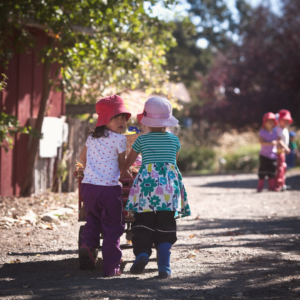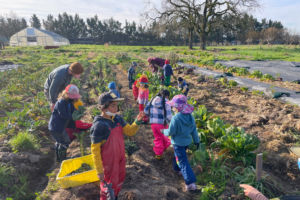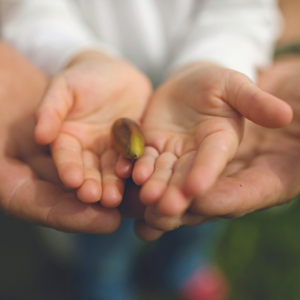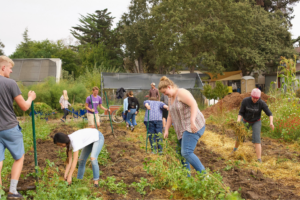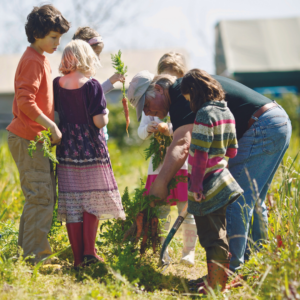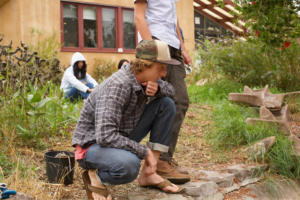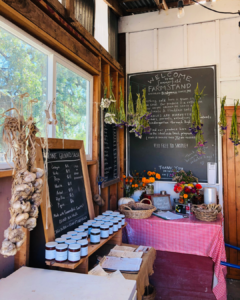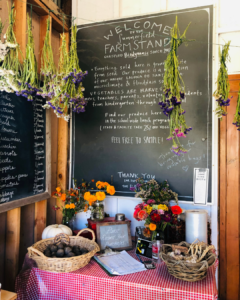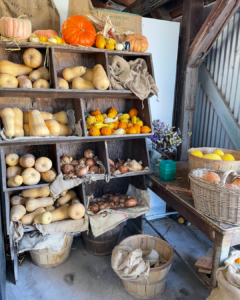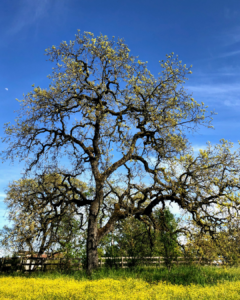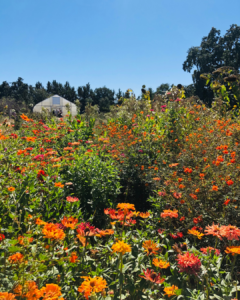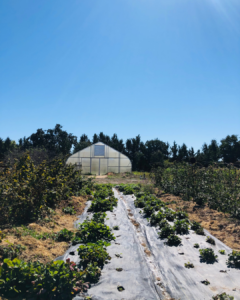The academic benefits of… gardening?
More and more schools are recognizing the importance of time in nature for students’ mental and physical health. Additionally, there is new research on the academic benefits of garden-based learning.
Several decades of research show that gardening has a positive impact on students. From their academic performance, behavior, breadth and depth of knowledge, level of engagement, and attitude, students are benefiting from garden-based learning.
That is why gardening and nature-based education are an integral part of Waldorf Education.
The farm and garden at Summerfield is a foundational part of the campus, and a core part of the curriculum – for classes from preschool through twelfth grade.
Gardening provides important active and experiential learning opportunities. This helps students contextualize and understand complex academic subjects like math and science. Additionally, gardening can increase physical dexterity, teach motor skills, and educate students about nutrition and lifestyle.
- Early Childhood Students on Their Way to the Garden
- Kindergarteners Harvesting on the Farm
- Early Childhood Hands Holding an Acorn from the Garden
Research shows that school gardens can improve academic achievement.
The MSU Extension article, “Educational Benefits of School Gardening for Students”, by Kristine Hahn states:
“Students who participated in school garden activities scored significantly higher on science achievement tests compared to the same grade level students who did not.”
Drew Desilver of the Pew Research Center found that students learn more and better when they are actively involved in the learning process. Therefore, he says that gardening is exactly the kind of hands-on and active learning that students need in order to thrive.
The informal and hands-on nature of garden-based learning is flexible enough for all different kinds of learners. Similarly, gardening can bring any subject or lesson to life – from math and science to history and nutrition.
- High School Students Tending the Farm
- Elementary Students Working on the Farm
- High School Students in the Garden
Research shows that nature brings out the best in children.
In the article, “At Playtime, Open Fields and Trees Beat Seesaws and Monkey Bars”, Stephen Merrill states:
“New research suggests that natural elements like mud, sticks, and trees might unlock the imaginative power of play—beating out purpose-built spaces like the neighborhood playground. Nature play has positive impacts on developmental outcomes for children. Particularly in the cognitive domains of imagination, creativity and dramatic play.”
Moreover, a school with a garden or farm can harvest produce to sell, serve in school lunches, and bring into the outside community.
Summerfield’s farm and garden produce a seasonal bounty of fruits, vegetables, and flowers. As a result, we are able to incorporate much of this into our hot lunch program, and sell our product in the Farm Stand as well.
- Summerfield Farm Stand
- Farm Stand Blackboard
- Autumn Harvest in the Farm Stand
At Summerfield’s farm and garden, children have the opportunity to learn many basic skills that are rapidly becoming lost in today’s society.
For example, by tending soil, turning the compost, planting perennial gardens, harvesting vegetables for soup, caring for farm animals, and pruning and grafting, each student gains a deeper awareness of the natural world.
- Oak Tree on the Farm
- Flowers in the Garden
- Vegetables on the Farm
Our Gardening & Farming Curriculum for Preschool to High School
Preschool: Animal visits, carrot digging, seasonal walking and a snack. One hour each week on the Farm.
Kindergartens: Seasonal rhythms, cider pressing, potato gathering, pumpkin harvesting, animal feeding and visits, egg gathering, snacks, building a fire to cook things on, walking in the corn rows.
First Grade: First Grade garden, thistle digging in the pastures, corn shelling, apple pressing and drying, leaf raking.
Second Grade: Garden work, planting seeds, digging and weeding, social skills in the garden, sawing wood, harvesting beets.
Third Grade: Harvesting onions, potatoes, popcorn, field corn, winter squash and pumpkins, sowing a cover crop, birdhouse building, tree dressing, planting corn, onion, winter squash and pumpkins, sheep shearing.
Fourth Grade: Animal care, cleaning the duck pond and rabbit cages, gathering cowpies from the pasture and manure from the barns and chicken house, plus pruning and mulching the roses
Fifth Grade: Broom-making, animal care, and sketching plants for main lesson Botany block.
Sixth Grade: Broom corn harvest, maintaining compost bins, tool identification and maintenance, double-digging in student gardens, caning raspberries, seed planting, and potting.
Seventh Grade: Potato sorting, building toolboxes for a carpentry project.
Eighth Grade: Harvesting, cooking, nutrition Study, basket-weaving; using natural materials gathered on site.
Ninth Grade: Permaculture gardening, Herbal studies; research and practical application of the use of culinary and medicinal herbs.
Tenth Grade: Permaculture gardening, grafting of Fruit Trees.
Eleventh Grade: Plant cultivation and propagation, greenhouse work.
Twelfth Grade: Sustainable agriculture projects; individually chosen projects that serve the community.
HS Electives: Sustainable Agriculture; farming, harvesting, cooking and preserving.
Learn more about Summerfield or apply now!


